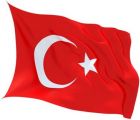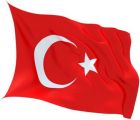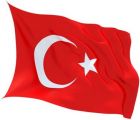| Country | Grants | Loans |
|---|---|---|
Spain 2015/16 - grants and loans | Although student grants exist at national, regional and local level, only those at national level have been considered here, as they are quantitatively the most important ones. The national grants are made up by several components, and each student may receive one or more of the components depending on their family income (grades are also taken into account in one of the components). These components are: fixed amount of EUR 1 500 based on the student’s family income; fixed amount of EUR 1 500 for living costs, for students living outside the family home during their studies and who also meet certain income criteria; and a variable amount, based on the student’s family income and grades. The minimum variable amount is EUR 60, and the maximum amount in 2013/14 was EUR 2 843.49 (this amount varies from year to year, since it results from distributing among the applicants the money that is left over after paying all the other components). Full-time students can apply for all components, whereas part-time students can only apply for the minimum amount of the variable amount component (EUR 60), and distance education students can apply for the complete variable amount component. There is also a last component aimed at students whose family residence is located in the Canary Islands, the Balearic Islands, or the autonomous cities of Ceuta and Melilla, and whose university is located either in another one of those locations or in mainland Spain. This component ranges from EUR 442 to 937. Since this kind of support is granted on an individual level, and each student receives a different amount, the 'most common' value cannot be provided. However, the average amount for a grant (including fees and other components) is EUR 2 498.84. All students who receive grants are also exempt from paying fees. Students can receive different grant components depending on their family income, grades and other circumstances. The minimum grant is EUR 60 plus a waiver from tuition fees. The maximum grant in 2014/15 was EUR 6 840.49 The approximate 29 % of students receiving grants include, apart from those of the general call, those who are partially exempt of paying fees for large family, and collaboration scholars. | No loans. |
Spain 2016/17 - grants and loans | The national general grant has several components. Each student may receive one or more of the components
depending on their family income (grades are also considered in one of the components): fixed amount of
EUR 1 500 based on the student’s family income; fixed amount of EUR 1 500 for living costs for students living
outside the family home during their studies and who also meet certain income criteria; and a variable amount,
based on the student’s family income and grades. The minimum variable amount is EUR 60, and the maximum
amount varies from year to year, since it results from distributing among the applicants the money that is left over
after paying all the other components. Full-time students can apply for all components. Part-time students can only
apply for the minimum amount of the variable component (EUR 60). Distance education students can apply for the
complete variable amount component. A component is also aimed at students whose family residence is located in
the Canary Islands, the Balearic Islands, or the Cities of Ceuta and Melilla, and whose university is located either
in another one of those locations or in mainland Spain. This component ranges from EUR 442 to 937.
All 1st and 2nd cycle students who receive a grant are also exempt from paying fees. However, the grant only covers those ECTS credits that the student takes for the first time (i.e. if a student has to re-take a subject, it won’t be covered by the grant the second and subsequent times). Short cycle students receive a 'basic grant' component of EUR 200. Grants are awarded on an individual level, and therefore each student receives a different amount. However, the average amount for a grant in 2015/16 was EUR 2 164.26 (in addition to an exemption of fees). | No loans. |
Sweden 2013/14 - grants and loans | Grants of SEK 707/week (3 063/month) for nine months per year are universally available. The maximum per year is 27 567 SEK. 67 % of students received grants in 2012. | Loans of SEK 1 549/week (6 712/month) nine months per year are universally available.
Students with children can receive an extra grant. It is also possible for some students to receive further supplementary loans and loans for additional costs in connection to their studies. This concerns, for example, students with necessary additional costs for double housing, travel, musical instruments, etc. |
Sweden 2015/16 - grants and loans | Grants of SEK 707/week for 40 weeks per year are universally available for full time students during six years. The maximum per year is SEK 28 280. Part-time students, studying at least 50 percent, are able to receive grants proportional to their pace of study. 71 percent of students received grants in the second half of the calendar year 2013. The number includes those who are entitled to as well as those who are not entitled to grants due to pace of study, age or because they have already received grants during six years. | Loans of SEK 1 780/week for 40 weeks per year are universally available for full time students during six years. The maximum per year is SEK 71 200. Part-time students, studying at least 50 percent, are able to receive loans proportional to their pace of study. 50 percent of students received loans in the second half of the calendar year 2013, the number includes those who are entitled to as well as those who are not entitled to loans due to pace of study, age or because they have already received loans during six years. |
Sweden 2016/17 - grants and loans | Grants of SEK 704/week for 40 weeks per year are universally available for full-time students for six years. The maximum amount per year is SEK 28 160. Part-time students, studying at least 50 %, are able to receive grants proportional to their pace of study. 71 % of the all students received grants in 2014. | State guaranteed loans of SEK 1 772/week for 40 weeks per year are universally available for full-time students
for six years. The annual maximum amount is SEK 70 880. Part-time students, studying at least 50 %, are able to
receive loans proportional to their pace of study. Repayment starts at the earliest six months after the student last
received the loan, and must be completed within 25 years or before the age of 60. The government decides upon
the interest rate level on a yearly basis. 52 % of students received loans in 2014.
Students with children can receive an extra grant. It is also possible for some students to receive further supplementary loans, and loans for additional costs connected to their studies. This concerns, for example, students with additional costs for double housing, travel, musical instruments, etc. |
Switzerland 2013/14 - grants and loans | Each canton has its own regulations for the provision of grants and loans to students with residence in
Switzerland (decentralised system). In all cantons, the amount granted depends on the financial situation of the
applicant and his/her family.
In principle, support in the form of grants or loans or a combination of both is provided, but the majority of beneficiaries only receive grants. [2011: 10.4 % grants only, 1.6 % loans only, 1.1 % grants and loans] Some higher education institutions have their own funds for supplementary support of students. Students can only apply if they already have applied for cantonal grants/loans. | Each canton has its own regulations for the provision of grants and loans to students with residence in
Switzerland (decentralised system). In all cantons, the amount granted depends on the financial situation of the
applicant and his/her family.
In principle, support in the form of grants or loans or a combination of both is provided, but the majority of beneficiaries only receive grants. [2011: 10.4 % grants only, 1.6 % loans only, 1.1 % grants and loans] Some higher education institutions have their own funds for supplementary support of students. Students can only apply if they already have applied for cantonal grants/loans. |
Switzerland 2015/16 - grants and loans | Each canton has its own regulations for the provision of grants and loans to students with residence in Switzerland (decentralised system). In all cantons the amount granted depends on the financial situation of the applicant and his/her family. | In principle, support in the form of grants or loans or a
combination of both is provided, but the majority of beneficiaries only
receive grants. [2013/14: about 11 % grants only, about 1 % loans only,
about 1 % grants and loans]. Less than 1 % of students receive a merit-based grant. Some higher education institutions have their own funds for supplementary support of students. Students can only apply if they already have applied for cantonal grants/loans. |
Switzerland 2016/17 - grants and loans | Each canton has its own regulations for the provision of grants and loans to students resident in Switzerland
(decentralised system). In all cantons, the amount granted depends on the financial situation of the applicant and
his/her family.
Support in the form of grants or loans or a combination of both is provided. The majority of beneficiaries only receive grants (2014: about 95 % grants only, about 2 % loans only, about 3 % grants and loans). In 2014, the most common loan was CHF 6 200. Some higher education institutions have their own funds for supplementary support of students. Students can only apply if they already have applied for cantonal grants/loans. | Each canton has its own regulations for the provision of grants and loans to students resident in Switzerland
(decentralised system). In all cantons, the amount granted depends on the financial situation of the applicant and
his/her family.
Support in the form of grants or loans or a combination of both is provided. The majority of beneficiaries only receive grants (2014: about 95 % grants only, about 2 % loans only, about 3 % grants and loans). In 2014, the most common loan was CHF 6 200. Some higher education institutions have their own funds for supplementary support of students. Students can only apply if they already have applied for cantonal grants/loans. |
Turkey 2013/14 - grants and loans | Grants: University students receive various types of grants during their education. Firstly, scholarship, described in regulations as money given to university students who are in need of financial support in line with the Article 5102 of Higher Education Council amounts to TL 280/month. Secondly, learning credits (öğrenim kredisi), described in regulations as money given to university students to conduct their social and other needs during their education at universities amounts to TL 260/month. Both, scholarship and learning credit are for 12 months. Thirdly, students can receive a 'contribution to education' (katkı payı) from the university. It means that students pay lower fees (TL 200). The exact amount of reduction depends on study programme. | Loans: In 2013, students in the 1st cycle receive TL 280, while students in the 2nd cycle are provided with TL 560 per month. Students who receive this amount of money have to pay back upon their graduation in instalments. |
Turkey 2015/16 - grants and loans | Need-based grants are provided by the Higher Education Credits and Hostels Institution Exceptionally, students who study in non-profit foundation universities may receive discounts from the university. For example, depending on the performance they show in university entrance exam, they may be asked to pay only half or five eighths of the fee (this may vary from one university to another). | Loans: In 2014, students in the 1st cycle receive TL 300, while students in the 2nd cycle are provided with TL 600 per month. Students who receive this amount of money have to pay back upon their graduation in instalments. |
Turkey 2016/17 - grants and loans | Need-based grants are provided by the Higher Education Credits and Hostels Institution. Short-cycle, first and
second cycle students can receive need-based grants. No further information is available on the eligibility criteria.
In 2015, students in first cycle receive TL 330 per month (TL 3 960 a year), while students in second cycle are provided with monthly TL 660 (TL 7 920 per year). 10 % of students receive need-based grant. Merit-based grants are provided by the General Directorate of Higher Education Credit and Hostels Institution, universities, municipalities, and NGOs for good performing students. The state grant (via the General Directorate) is a standard monthly TL 990 to eligible students. The amount of other grants is different for every institution. Students who pass the university entrance exam with excellent results may be offered to pay only half or five eighths of the fee (this may vary from one university to another). | Loans: in 2015, students in the 1st cycle receive TL 330, while students in the 2nd cycle are provided with TL 660 per month. The repayment begins two years after graduation in monthly instalments. Repayment needs to be completed in as much time as the student benefited from the loan. The repayment amount is calculated according to domestic product price index. This is a state guaranteed loan, which 28 % of students receive. |
Wales 2013/14 - grants and loans |
1st cycle full-time – the support package includes a need based grant for living costs. The maximum is GBP 5 161 (for students with a
household income of GBP 18 370 or less). In 2012/13, 38 % of applicants were awarded a full grant and 30 % were awarded a partial grant.
Students who are lone parents or who have certain disabilities may be eligible for a special support grant.
1st cycle full-time – the support package includes a loan for living costs for all students. The maximum loan for students living in the family home is GBP 5 150 and GBP 3 987 for students living away. The amount is reduced for students who receive a need based grant. Repayments as for tuition fee loans. 1st cycle full-time – students who receive the maximum grant for living costs or special support grant and who study at participating institutions may receive an additional bursary of a minimum of GBP 347. 1st cycle part-time – a need-based grant for tuition fees and other costs is available. Loans are not available. 2nd cycle – with the exception of a few specific disciplines, such as teaching, social work and some health professions, the majority of students following taught programmes are self-financing. There is some support for students on doctoral research programmes (which may incorporate masters level study). The Research Councils set a minimum level for this stipend which for 2013/14 is GBP 13 726 per year. Around 60 % of students on taught programmes and 30 % of research students do not receive any support towards tuition fees or living costs. |
1st cycle full-time – the support package includes a need based grant for living costs. The maximum is GBP 5 161 (for students with a
household income of GBP 18 370 or less). In 2012/13, 38 % of applicants were awarded a full grant and 30 % were awarded a partial grant.
Students who are lone parents or who have certain disabilities may be eligible for a special support grant.
1st cycle full-time – the support package includes a loan for living costs for all students. The maximum loan for students living in the family home is GBP 5 150 and GBP 3 987 for students living away. The amount is reduced for students who receive a need based grant. Repayments as for tuition fee loans. 1st cycle full-time – students who receive the maximum grant for living costs or special support grant and who study at participating institutions may receive an additional bursary of a minimum of GBP 347. 1st cycle part-time – a need-based grant for tuition fees and other costs is available. Loans are not available. 2nd cycle – with the exception of a few specific disciplines, such as teaching, social work and some health professions, the majority of students following taught programmes are self-financing. There is some support for students on doctoral research programmes (which may incorporate masters level study). The Research Councils set a minimum level for this stipend which for 2013/14 is GBP 13 726 per year. Around 60 % of students on taught programmes and 30 % of research students do not receive any support towards tuition fees or living costs. |
Wales 2015/16 - grants and loans | 1st cycle full-time – the support package includes a need based grant for living costs. The grant is awarded on a sliding scale with a full grant of GBP 5 161 for students with a household income of GBP 18 370 or less. In 2013/14, 68 % of applicants eligible for support (grant and/or loan) were awarded a grant: 39 % were awarded a full grant and 29 % were awarded a partial grant. | 1st cycle full-time – the support package includes a loan for living
costs for all students. The maximum loan for students living in the
family home is GBP 4 162. For students living away from the family home,
the maximum is GBP 5 376 outside London and GBP 7 532 in London. The
amount is reduced for students who receive a need based grant.
Repayments as for tuition fee loans. 1st cycle part-time – a need-based course grant is available to students studying at an intensity of at least 50 %. 2nd cycle – there is no universal support package. 2nd cycle postgraduate non-taught – individual institutions can provide a merit based grant, which tends to follow the minimum stipend recommended by Research Councils UK, GBP 14 057 for 2015/16. |
Wales 2016/17 - grants and loans | 1st cycle and short-cycle full-time: students can apply for a fee grant of up to GBP 5 100 and a fee loan of up to GBP 3 900 to cover the full tuition fee. Repayments are income-contingent and set at 9 % of earnings above the threshold of GBP 21 000; interest rates are Retail Price Index plus 3 %. | The support package also includes a need-based grant and a loan for living costs. The grant amount depends on
income, with a maximum of GBP 5 161 for students with a household income of GBP 18 370 or less. In 2014/15,
66.6 % of applicants eligible for support (grant and/or loan) received a grant (37.4 % of applicants received a full
grant and 29.2 % a partial grant). The maximum loan for students living in the family home is GBP 4 786. For
students living away from home, it is GBP 6 183 and less for students who receive a need-based grant. Repayments
are set at 9 % of earnings above the threshold of GBP 21 000; interest rates are Retail Price Index plus 3 %.
1st cycle part-time: students studying a course of at least 25 % intensity, or in short cycle programmes, can apply for a loan to cover the tuition fee. A need-based grant is available to students studying at an intensity of at least 50 %. 2nd cycle: there is no universal support package. 2nd cycle postgraduate non-taught – individual institutions can provide a merit-based grant, which tends to follow the minimum stipend recommended by Research Councils UK, GBP 14 296 for 2016/17. |